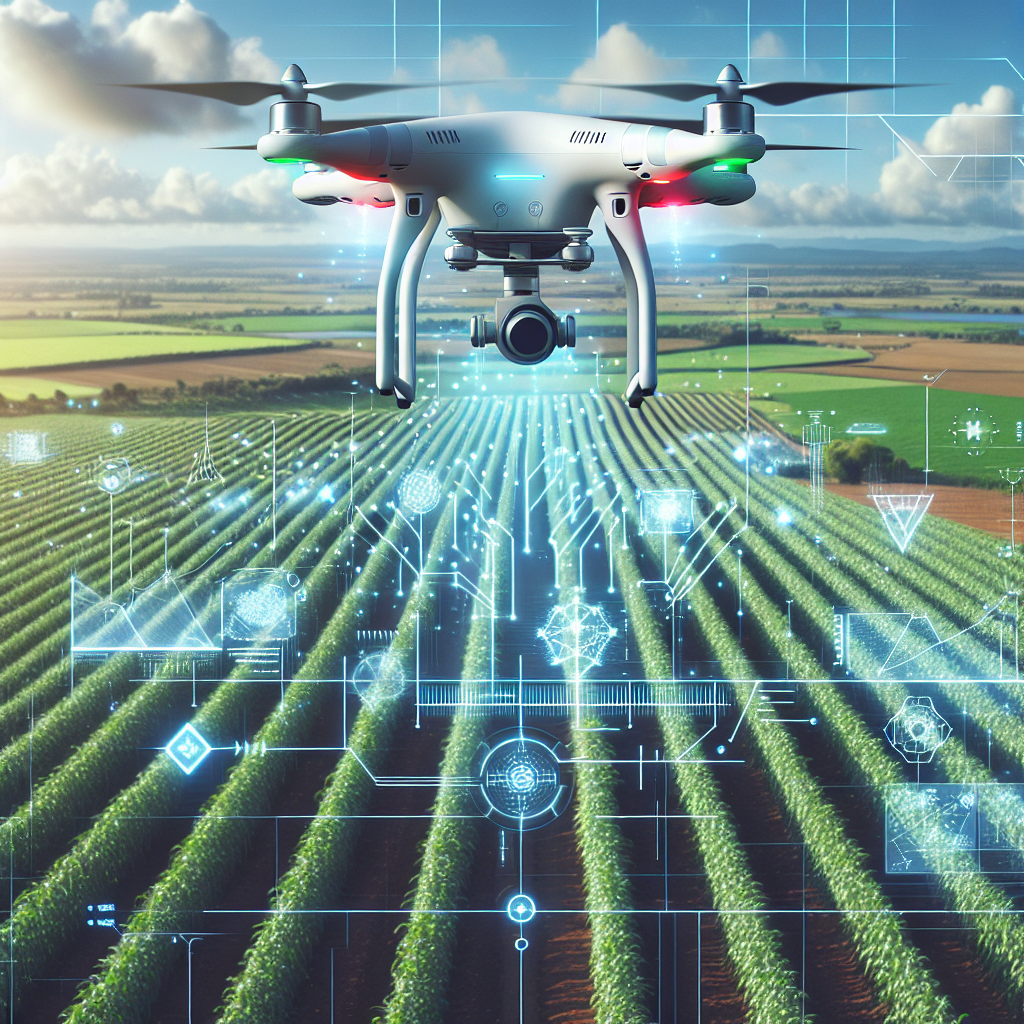Agricultural drones have become an essential tool in modern farming practices, helping farmers to increase productivity, reduce costs, and improve crop yields. With the integration of artificial intelligence (AI) technology, drones are becoming even more powerful and efficient in performing various tasks in the agricultural sector.
AI applications for agricultural drones are revolutionizing the way farmers manage their crops and land. From precision farming to crop monitoring and pest management, AI-powered drones are transforming agriculture in ways never seen before. In this article, we will explore the different applications of AI in agricultural drones and how they are helping farmers to improve their operations.
1. Precision Farming:
Precision farming is a farming management concept that uses technology to optimize crop production and ensure sustainability. AI-powered drones play a crucial role in precision farming by collecting data on soil quality, moisture levels, and crop health. This data is then analyzed by AI algorithms to provide farmers with valuable insights on how to best manage their land and crops.
AI-powered drones can create detailed maps of the farm, identifying areas that need more or less fertilizer, water, or other inputs. This allows farmers to apply resources more efficiently, reducing costs and minimizing environmental impact. By using drones equipped with AI technology, farmers can make data-driven decisions that lead to higher crop yields and better overall farm management.
2. Crop Monitoring:
One of the key applications of AI in agricultural drones is crop monitoring. Drones equipped with AI algorithms can capture high-resolution images of crops, allowing farmers to monitor crop health and growth patterns in real-time. AI technology can analyze these images to detect signs of stress, disease, or pest infestation, enabling farmers to take immediate action to protect their crops.
AI-powered drones can also monitor crop development over time, providing valuable data on growth rates, flowering patterns, and yield predictions. This information helps farmers to make informed decisions about when to harvest, how to manage crop rotation, and how to optimize their planting strategies for maximum productivity.
3. Pest Management:
Pest management is a significant challenge for farmers, as pests can cause significant damage to crops and reduce yields. AI-powered drones are revolutionizing pest management in agriculture by providing farmers with a proactive approach to pest control. Drones equipped with AI technology can scan fields for signs of pest infestation and identify specific areas that are at risk.
AI algorithms can analyze data collected by drones to detect pests early, allowing farmers to take targeted actions to prevent further damage. Drones can also be used to apply pesticides or other treatments precisely, reducing the need for broad-spectrum chemicals and minimizing environmental impact.
FAQs:
Q: How do AI-powered drones collect data in agriculture?
A: AI-powered drones are equipped with various sensors, such as cameras, multispectral imaging systems, and thermal sensors, to collect data on soil quality, crop health, and environmental conditions. These sensors capture high-resolution images and other data, which is then analyzed by AI algorithms to provide farmers with valuable insights.
Q: What are the benefits of using AI in agricultural drones?
A: Using AI technology in agricultural drones offers several benefits, including increased efficiency, improved crop yields, reduced costs, and more sustainable farming practices. AI-powered drones can help farmers to make data-driven decisions, optimize resource management, and respond quickly to changing conditions in the field.
Q: How can farmers integrate AI-powered drones into their operations?
A: Farmers can integrate AI-powered drones into their operations by investing in drone technology, training staff on how to use drones effectively, and partnering with AI software providers to analyze data collected by drones. By incorporating AI-powered drones into their farming practices, farmers can improve productivity, reduce risks, and increase profitability.
In conclusion, AI applications for agricultural drones are transforming the way farmers manage their land and crops. From precision farming to crop monitoring and pest management, AI-powered drones offer a range of benefits for modern agriculture. By leveraging AI technology, farmers can make data-driven decisions, optimize resource management, and improve overall farm productivity. As AI continues to advance, we can expect to see even more innovative applications of AI in agricultural drones, helping farmers to meet the challenges of feeding a growing global population while preserving the environment for future generations.

